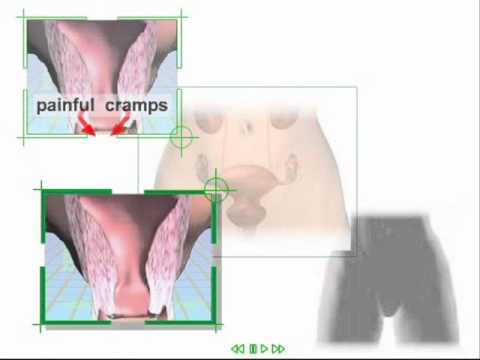Women experience severe symptoms of menstrual cramps, such as severe throbbing or stabbing pain in the lower abdomen
Pain that begins a few days before your period peaks a few days after your period and will subside within a few days after your period starts.
Sometimes this pain is caused by irregular periods or ovulation problems. In other cases, it is a symptom of cysts and other types of pelvic inflammatory disease (PID) and cancer.
Fortunately, there are many ways to treat or prevent these symptoms. You may not even need a doctor's appointment to manage your pain, and many treatments do not require any medication at all. However, if you want to use some over-the-counter remedies, here are some of the most common stop menstrual cramps.
In some cases, if the cramps themselves are not the source of your pain, you can try some natural home remedies. One such remedy is witch hazel, which is known to reduce the symptoms of menstrual cramps. Witch hazel is applied topically and may relieve pain. Some people find that applying witch hazel directly to the affected area and massaging it lightly can also help with cramps.
The next remedy includes pain relievers. Some pain relievers can actually reduce the severity of the pain, while others can make you feel dizzy. While this is certainly a good way to try, if you have severe cramping symptoms, you should never try to self-medicate, especially if you are unsure of what you are doing. If you do decide to take pain reliever, be sure to read the label. Some OTC drugs, such as acetaminophen or ibuprofen, cause more pain and dizziness than they relieve, so make sure you know the depth of the problem.

If you're experiencing severe cramping during your menstrual period, then you may also want to consider trying some birth control pills. These are an excellent option because they can help you avoid the worst of the pain. You can find that some birth control pills can actually prevent your menstrual cramp symptoms or make them much more tolerable.
Before starting a birth control pill, talk to your doctor. Because every woman's body is different, some birth control pills may not work at all for some women, and some birth control pills can cause serious side effects for some women. So if you're not sure which birth control pill is best for your case, ask your doctor about it first. There are birth control pills that are specifically designed for women suffering from extreme menstrual pain, so you may want to discuss that option with your doctor.
There are also things that you can do on a regular basis to relieve your discomfort, which includes drinking lots of water, sleeping on your side, eating fiber, and taking a calcium supplement. Drinking plenty of water can help to keep the urinary tract healthy and free of infection. Also, eating plenty of fiber is helpful in helping to eliminate toxins that build up in the body, and calcium can help increase your blood flow.
Taking a calcium supplement can also be helpful, and it's also worth trying a birth control pill first just to see if there are any harmful side effects associated with taking the birth control pill. There is some evidence that taking birth control pills may help stop menstrual cramps, but it's not always clear whether this is the case. Other methods of relief include acupuncture and herbal treatments.
Of course, there are also alternative therapies that you can try that don't involve medication or surgery. Yoga is one such method. It may sound weird at first, but it can be effective in reducing cramping and improving your overall health.
With all of these different remedies out there, you shouldn't have a problem finding relief from the pain and discomfort that come with some painful period symptoms. However, if your cramping keeps coming back, then it's time to seek medical attention from your doctor.